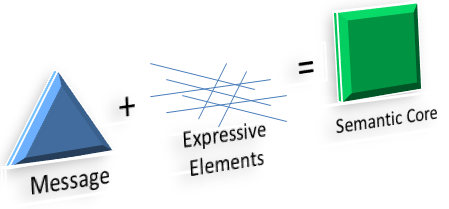Tag Archives: information
08 Apr Symmetrical Logic and Lineage

Symmetry may not immediately appear as a principle of logic or reason, but it should. In mathematics we learn the commutative and associative properties of addition and multiplication. These represent a mirror-like symmetry. Symmetry, or invariance against change, is a fundamental principle of physics and an underlying assumption driving some logical decisions. Causality, for example, […]
31 Mar Truth, Belief and Confidence

Establishing frameworks for truth, belief and confidence can be part of raising a child and part of building a more intelligent system. Parents in households of faith often feel a compelling need to teach their children about things that are outside the realm of scientific discovery. In espionage, intelligence analysts review information collected by agents, electronic snoops, and […]
28 Mar Is Everything Black or White?

We have exercised our abstract ideas about that which is too big and chaotic for us to understand (everything), let’s take a glimpse at that which is so small and chaotic that we may never really figure it out: the workings of the mind. In the next few posts, we will examine different forms of logical […]
26 Mar Bayes and Search Theory

What began as a study of belief has turned into a strategy for solving very complex problems. Thomas Bayes (/ˈbeɪz/; 1701–1761) proposed a model in which adding evidence of different types, or from different sources, to a problem will change the calculated probabilities for the outcomes of the “reasoning” process. We’ve forgotten what he looked like, […]
22 Mar Common Sense and Thresholds

Finding Thresholds Threshold conditions are boundaries between states, and they exist everywhere, affecting everything. From a computational perspective, thresholds are a valuable tool for limiting the problem space to within manageable limits. In other words, knowing where the edges are can help us computationally color inside the lines. How could we determine a threshold? Observing, […]
19 Mar Fuzzy Logic Section Intro

Why do we find Mr. Spock, Commander Data or C3P0 so lovable? We have all known people like them: they are the ones who see the world in black and white. Spock had an excuse – he was a Vulcan who knew a lot. Computers, on the other hand, can be downright exasperating when they get […]
15 Mar The Random Hamlet

For building an automated language understanding and translation system, I believe that adding random factors to the model for “fuzzy” reasoning is needed and important. The questions are: How do we use random factors to improve the outcomes of the process? Where do we insert random factors into the model? How do we implement random […]
14 Mar That’s so Random!

Random Probability Theory Some things are difficult to predict, and some are nearly impossible to predict. The further a thing gets from predictable, the more nearly it approaches randomness. It may seem silly to try to define chaos or randomness or anything that spends its entire existence trying to defy definition, but some of us […]






